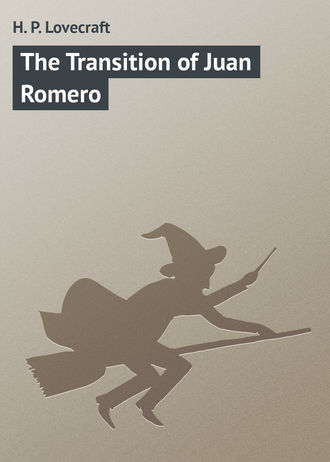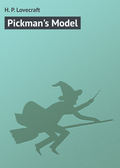
Говард Филлипс Лавкрафт
The Transition of Juan Romero
At two in the morning a lone coyote on the mountain began to howl dismally. From somewhere within the works a dog barked an answer; either to the coyote – or to something else. A storm was gathering around the peaks of the range, and weirdly shaped clouds scudded horribly across the blurred patch of celestial light which marked a gibbous moon’s attempts to shine through many layers of cirro-stratus vapours. It was Romero’s voice, coming from the bunk above, that awakened me, a voice excited and tense with some vague expectation I could not understand:
“Madre de Dios! – el sonido – ese sonido – oiga Vd! – lo oye Vd? – señor, THAT SOUND!”
I listened, wondering what sound he meant. The coyote, the dog, the storm, all were audible; the last named now gaining ascendancy as the wind shrieked more and more frantically. Flashes of lightning were visible through the bunk-house window. I questioned the nervous Mexican, repeating the sounds I had heard:
“El coyote – el perro – el viento?”
But Romero did not reply. Then he commenced whispering as in awe:
“El ritmo, señor – el ritmo de la tierra – THAT THROB DOWN IN THE GROUND!”
And now I also heard; heard and shivered and without knowing why. Deep, deep, below me was a sound – a rhythm, just as the peon had said – which, though exceedingly faint, yet dominated even the dog, the coyote, and the increasing tempest. To seek to describe it was useless – for it was such that no description is possible. Perhaps it was like the pulsing of the engines far down in a great liner, as sensed from the deck, yet it was not so mechanical; not so devoid of the element of the life and consciousness. Of all its qualities, remoteness in the earth most impressed me. To my mind rushed fragments of a passage in Joseph Glanvil which Poe has quoted with tremendous effect:
“—the vastness, profundity, and unsearchableness of His works, which have a depth in them greater than the well of Democritus.”
Suddenly Romero leaped from his bunk, pausing before me to gaze at the strange ring on my hand, which glistened queerly in every flash of lightning, and then staring intently in the direction of the mine shaft. I also rose, and both of us stood motionless for a time, straining our ears as the uncanny rhythm seemed more and more to take on a vital quality. Then without apparent volition we began to move toward the door, whose rattling in the gale held a comforting suggestion of earthly reality. The chanting in the depths – for such the sound now seemed to be – grew in volume and distinctness; and we felt irresistibly urged out into the storm and thence to the gaping blackness of the shaft.
We encountered no living creature, for the men of the night shift had been released from duty, and were doubtless at the Dry Gulch settlement pouring sinister rumours into the ear of some drowsy bartender. From the watchman’s cabin, however, gleamed a small square of yellow light like a guardian eye. I dimly wondered how the rhythmic sound had affected the watchman; but Romero was moving more swiftly now, and I followed without pausing.







